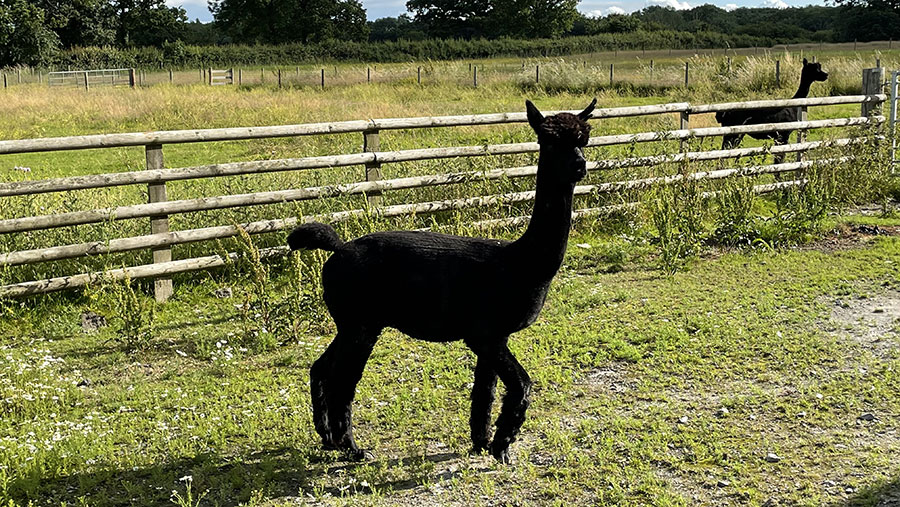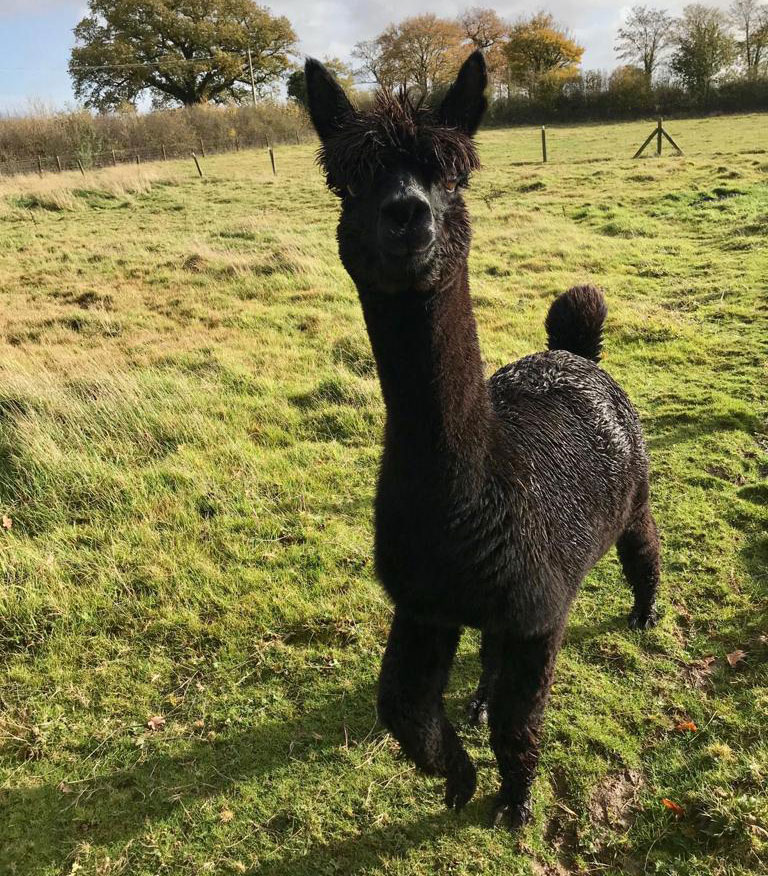Farmer in bovine TB fight with Defra to save alpaca
 Geronimo © Helen MacDonald
Geronimo © Helen MacDonald A farmer at the centre of a bovine tuberculosis (TB) row with Defra has made a last-ditch bid to keep her prized alpaca alive.
Helen MacDonald’s alpaca, Geronimo, was ordered to be slaughtered after it failed two TB tests at her farm in Wickar, south Gloucestershire, in 2017.
Geronimo was brought to the UK from a TB-free herd with the highest health status in New Zealand in August that year.
See also: 5 ways to improve TB control in the UK
After he arrived in this country, alpaca from Taumarunui – now aged eight – was given voluntary Enferplex (blood) surveillance testing as part of best practice promoted by the camelid industry.
Despite twice testing negative for TB in New Zealand, the first test in the UK produced a positive test, but Defra agreed to retest him after Ms MacDonald raised concerns.

Geronimo © Helen MacDonald
Tuberculin injections
Ms MacDonald is a registered veterinary nurse who has been qualified since 1994, and she has been breeding alpacas for 19 years. She said she was coerced into accepting a second test which involved a further injection of tuberculin into the alpaca.
Defra claims tuberculin is administered to alpacas to improve the sensitivity of the blood test. However, the Enferplex test is not validated for use in this way in camelids – it is only validated as a standalone test, without tuberculin.
Ms MacDonald believes the results of the tests were “false positives” because of multiple priming of tuberculin – an inactivated strain of Mycobacterium bovis which is used in skin tests to detect bovine TB – over many years.
“I believe Geronimo produced an antibody response to the tuberculin injections that he had prior to importation,” said Ms MacDonald.
Over the past four years, Ms MacDonald has been challenging Defra and the Animal and Plant Health Agency (Apha) over the test results and how they arose.
She said: “Defra has refused to retest him and I’m not allowed to retest him either because if I do, I will be breaking the law. We are challenging a point of law now.
“The principle is this animal is fit and healthy. We have expert camelid vets who agree this is the case.
“We are four years down the track. Alpacas normally die within months of contracting TB. Going round killing healthy animals is not really going to solve the problem of bovine TB in this country.”
Movement restrictions
Ms MacDonald’s alpaca herd was put under movement restrictions after the first positive test in August 2017 – and she has been unable to trade livestock ever since.
In June 2019, the High Court refused to overturn a Defra slaughter notice to destroy Geronimo. Last December, Apha applied to magistrates for a warrant to gain entry to slaughter the alpaca.
The warrant took effect on 29 June for 30 days. But Ms MacDonald successfully applied for an emergency injunction to prevent the warrant from being executed. Her appeal hearing will be heard on 29 July in London.
“This case is about wanting to improve tests so that they can be used with more confidence,” said Ms MacDonald. “The Godfray report had a list of recommendations which included improving tests and everyone needs to try harder to get rid of this awful disease in this country.
“What they have done in this case, is taken a healthy animal from New Zealand and manipulated a test to ensure it can be killed, while damaging the voluntary surveillance testing which alpaca owners would like to do.”
Review case
Ms McDonald is asking Defra secretary George Eustice to review the evidence in her case, saying the information his department relies upon is wrong.
Duncan Pullar, chief executive of the British Alpaca Society (BAS), said: “We endorse the request for a further test of Geronimo. To date such requests have been declined by Defra/Apha.
“BAS continues to be committed to the best possible practice of bovine TB testing in alpacas for the benefit of the animals themselves, our bovine neighbours, BAS members, and wildlife.”
A Defra spokesperson said It would be “inappropriate to comment” given that legal proceedings are active.
